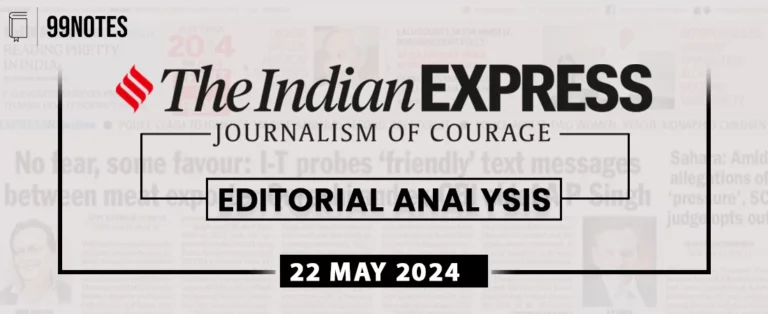21 December 2024 : Daily Answer Writing
Q1) Although accountability does not start and end with audit, it emphasises the need to fix responsibility for healthy governance”. In the light of this statement, evaluate the role of CAG in meeting the challenges of improving governance and extracting executive accountability.
(150 Words/10 Marks)
Answer:
The Comptroller and Auditor General is the constitutional body under Article 148 mandated to be the guardian of the public purse. The role of CAG is crucial in holding the government financially accountable to the parliamentary laws and Constitution.
Role in ensuring good governance and extracting executive accountability:
- Ensuring financial accountability: (a) audit the financial statements of the government, ensuring that public funds are used efficiently and for the intended purposes; (b) identifying discrepancies and irregularities in government spending; (c) preventing misuse of funds.
- Ensuring performance and efficiency in governance: (a) conducts performance audits to evaluate whether government programs/initiatives have achieved their objectives efficiently and effectively; (b) provide recommendations to improve the performance;
- Parliamentary Scrutiny and Public Accountability: CAG’s report is presented to the Parliament – (a) report is scrutinised and discussed in the parliament holding the executive accountable; (b) report is made accessible to the public for scrutiny and enhancing transparency.
- Other roles in ensuring good governance: (a) audit of public goods like quality of roads; audit of schemes like Swachh Vidyalaya Abhiyan etc. (b) Looks into wisdom, faithfulness and economy of government expenditure through Propriety Audit; (c) gives technical guidance support to improve local governance; (d) Comments on the wastefulness and extravagance of expenditure.
However, there are certain limitations in ability of CAG in improving governance and extracting executive accountability:
- Policy paralysis – Among the executive, there is widespread unwillingness to decide and act on important policy issues because of the repressive and negative influence of Propriety Audit.
- Appointment process: (a) While CAG is a constitutional authority, appointment is done by the government – suspicion cast on him being not very critical of the government; (b) fear of political interference; (c) IAAS is part of the civil services.
- Lack of expertise and training in audit practices; less knowledge of governance and government functioning – providing narrow perspective in audit.
- Obstruction of meaningful audit of crucial records because supply of records for auditing is missing.
Reforms needed:
- Implement Vinod Rai commission reforms: (a) CAG Act of 1971 should be amended; (b) A collegium type mechanism to choose CAG on the lines of selecting CVC; (c) CAG should come up with Big Data management policy in the wake of Big Data revolution.
2. Other reforms – (a) expand the ambit of CAG to include government agencies like CBI + Public-private partnerships (b) reports should suggest reforms not just criticism (c) appointment made through a Selection committee.



